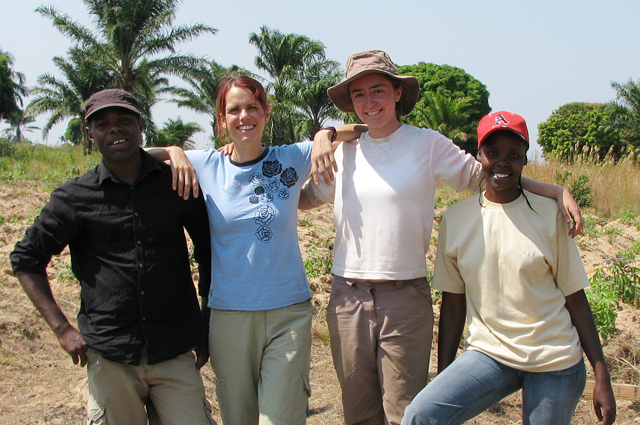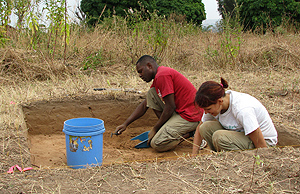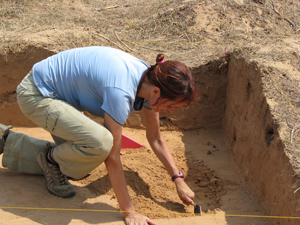Fellowship has Croucher Focused on 19th Century East Africa

As an archaeologist investigating 19th century sites in Zanzibar and Tanzania, it was impossible for Sarah Croucher to ignore the thousands of shreds of locally-produced and imported ceramics unearthed every day of excavations.
For archaeologists, these materials are vital to interpreting the social history of 19th century Islamic colonialism in East Africa.
“Many key questions remain uninvestigated, particularly in regard to how newly shared Zanzibar identities emerged during the 19th Century, which intersected with gender, religion, class and sexuality,” Croucher explains.

Croucher, assistant professor of anthropology, assistant professor of archaeology, assistant professor of feminist, gender and sexuality studies, has been awarded a nine-month Weatherhead Fellowship by the School for Advanced Research (SAR) in Santa Fe, N.M. Resident scholars approach their research from anthropology or from related fields such as history, sociology, art and philosophy, with fellowships providing scholars with “time to think and write about topics important to the understanding of humankind.” Scholars are provided with housing and office space on the SAR campus in Santa Fe.
Croucher was awarded the fellowship to complete writing up the findings of her research, tied together into a project titled “Consuming Colonialism: Archaeological Investigations of Ceramics and Identities in 19th Century East Africa.”
The core of this study results from survey and excavation work Croucher directed in 2003 and 2005 to investigate clove plantation sites on Zanzibar. Further material is drawn from a 2006 survey project along the central caravan route taken by traders during the 19th Century and excavations in 2008 at the site of Ujiji in Western Tanzania, made famous by the expeditions of Stanley and Livingstone.

The majority of her of her fellowship year will be spent completing her monograph, titled “Capitalism and Cloves: An Archaeology of plantation Life on Nineteenth Century Zanzibar,” based upon her revised dissertation, which was awarded the Society for Historical Archaeology 2008 dissertation prize. During the remainder of her fellowship year she also plans to write two journal articles. The first focusing on scholarship surrounding locally produced ceramics in colonial contexts and the second reflecting on interpretations of mass produced imported ceramics in African historical archaeology.
“This project will make an important contribution to the study of the development of African modernities in anthropology and history and to the growing study of the cultural meanings of commodities in 19th and 20th century Africa,” Croucher explains.
Her work centers on domestic sites, but works to combine examination of local findings with wider historical issues.
“As I combine analysis of the production and consumption of local and mass produced goods, I will be able to explore a range of scales of analysis, from the local interrelationships of female potters, to the ways in which East African tastes were understood in production ecumenes of industrially-produced ceramics,” she says.

